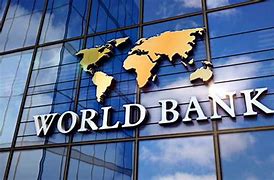The World Bank has projected an average economic growth rate of 3.6% for Nigeria between 2025 and 2026, attributing the optimistic outlook to ongoing reforms implemented by the Federal Government.
This forecast was detailed in the January 2025 edition of the World Bank’s Global Economic Prospects report, released on Thursday.
According to the report, these reforms have significantly bolstered business confidence in the country. Notable measures include the removal of fuel subsidies and the introduction of controversial tax reforms.
These changes, coupled with macroeconomic adjustments, have set the stage for sustained growth.
The World Bank noted that Nigeria’s Gross Domestic Product (GDP) growth reached an estimated 3.3% in 2024, driven primarily by activity in the services sector, particularly in financial and telecommunications services.
READ ALSO: Nigeria’s Economic Reforms Not Working- IMF
This momentum is expected to continue as fiscal and monetary policies stabilize the economy.
“Macroeconomic and fiscal reforms helped improve business confidence,” the report stated. “In response to rising inflation and a weak naira, the central bank tightened monetary policy.
Meanwhile, the fiscal deficit narrowed due to a surge in revenues driven by the elimination of the implicit foreign exchange subsidy, following the unification of the exchange rate and improved revenue administration.”
For Sub-Saharan Africa (SSA), the World Bank projects growth to strengthen to 4.1% in 2025 and 4.3% in 2026, reflecting easing financial conditions and declining inflation.
The growth forecast for the region has been revised upward by 0.2 percentage points for 2025 and 0.3 percentage points for 2026.
READ ALSO: Nigeria Becomes World Bank’s Third-Largest Debtor
The report highlighted that while Nigeria’s oil production is expected to increase over the forecast period, it will likely remain below the Organization of the Petroleum Exporting Countries (OPEC) quota. Despite a marginal growth in oil output in 2024, challenges persist.
OPEC’s Monthly Oil Market Report (MOMR) for December 2024 revealed a daily average oil production increase of 152,000 barrels per day (b/d) in November, from 1.333 million b/d in October to 1.486 million b/d.
However, data from the Nigerian Upstream Petroleum Regulatory Commission (NUPRC) indicated a slight decline in December, with daily average production dropping by 1.35% to 1.667 million b/d.
Cumulatively, Nigeria produced 51.69 million barrels of oil in December 2024, marking a marginal increase of 1.9% compared to November’s 50.71 million barrels.
READ ALSO: Fuel Subsidy Removal Prevented Nigeria from Bankruptcy – Tinubu
Following a period of monetary policy tightening in 2024, inflation is expected to decline gradually. The World Bank projects this will boost consumer spending and further drive growth in the services sector, which remains the main engine of the Nigerian economy.
However, the report also flagged concerns about per capita income growth, stating that it is expected to remain weak over the forecast horizon.
This underscores the need for sustained reforms and investment to ensure inclusive economic development.
With these projections, Nigeria’s economic trajectory appears poised for improvement, provided the Federal Government continues to implement policies that foster stability and growth.

